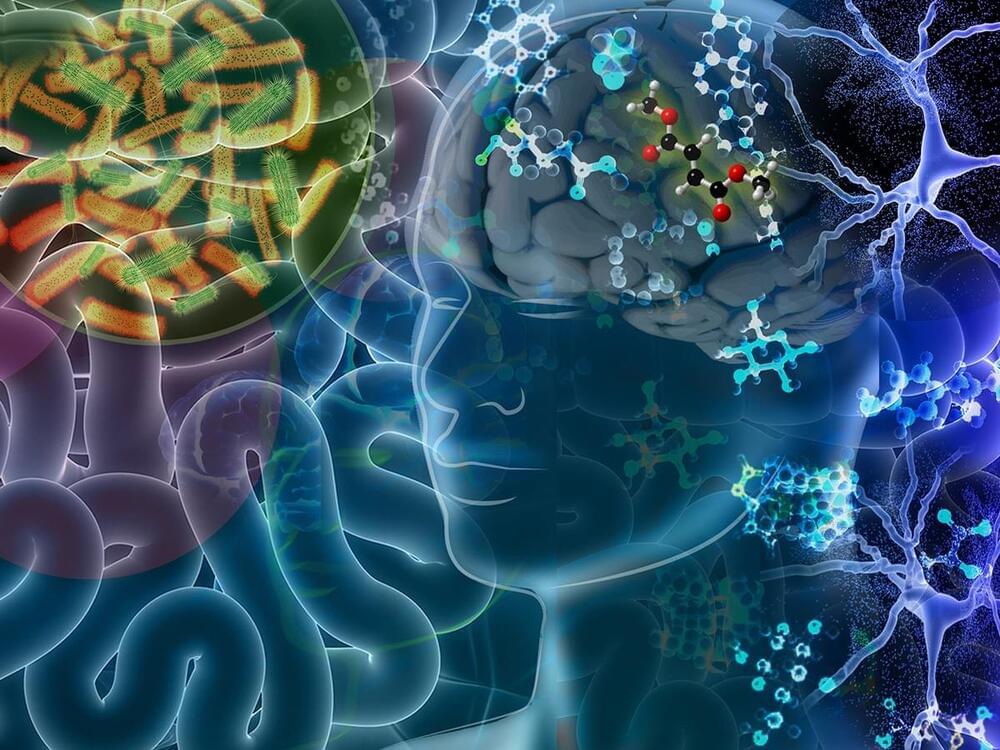𝙏𝙝𝙚 𝙂𝙧𝙖𝙙𝙪𝙖𝙩𝙚 𝘾𝙚𝙣𝙩𝙚𝙧 𝙤𝙛 𝙏𝙝𝙚 𝘾𝙞𝙩𝙮 𝙐𝙣𝙞𝙫𝙚𝙧𝙨𝙞𝙩𝙮 𝙤𝙛 𝙉𝙚𝙬 𝙔𝙤𝙧𝙠:
The Neuro-Network.
𝙎𝙘𝙞𝙚𝙣𝙩𝙞𝙨𝙩𝙨 𝙄𝙙𝙚𝙣𝙩𝙞𝙛𝙮 𝙂𝙪𝙩-𝘿𝙚𝙧𝙞𝙫𝙚𝙙 𝙈𝙚𝙩𝙖𝙗𝙤𝙡𝙞𝙩𝙚𝙨 𝙩𝙝𝙖𝙩 𝙋𝙡𝙖𝙮 𝙖 𝙍𝙤𝙡𝙚 𝙞𝙣 𝙉𝙚𝙪𝙧𝙤𝙙𝙚𝙜𝙚𝙣𝙚𝙧𝙖𝙩𝙞𝙤𝙣
𝙏𝙝𝙚 𝙙𝙞𝙨𝙘𝙤𝙫𝙚𝙧𝙮 𝙖𝙙𝙫𝙖𝙣𝙘𝙚𝙨 𝙪𝙣𝙙𝙚𝙧𝙨𝙩𝙖𝙣𝙙𝙞𝙣𝙜 𝙤𝙛 𝙩𝙝𝙚 𝙧𝙤𝙡𝙚 𝙤𝙛 𝙜𝙪𝙩-𝙗𝙧𝙖𝙞𝙣 𝙘𝙤𝙢𝙢𝙪𝙣𝙞𝙘𝙖𝙩𝙞𝙤𝙣𝙨 𝙞… See more.
The discovery advances understanding of the role of gut-brain communications in the development of multiple sclerosis and homes in on a potential therapeutic target
NEW YORK, December 20, 2021 — A New York-based, multi-institutional research team has found high levels of three toxic metabolites produced by gut bacteria in the cerebrospinal fluid and plasma samples of multiple sclerosis (MS) patients. The important findings, published in the journal Brain, further scientists’ understanding of how gut bacteria can impact the course of neurological diseases by producing compounds that are toxic to nerve cells.
Previously published evidence has supported the concept that an imbalance in the gut microbiota—the community of organisms that live in the human intestines—may underly a range of neurological disorders. Researchers also found that certain gut bacteria are either enriched or depleted in MS patients compared to healthy individuals, but it is unclear how these microbes communicate with the brain and affect the neurodegenerative disease process.
